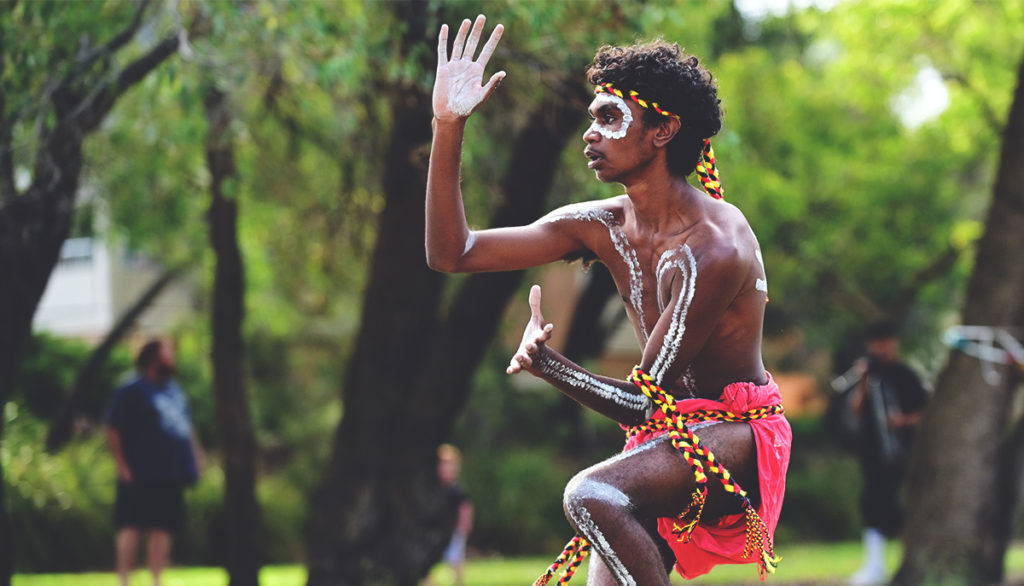Many international students say that one of the most confounding aspects of Australian culture is the constant use of slang. This isn’t surprising, as Australians use slang – in particular, ‘diminutives’ (shortened words) – more than any other English-speakers. In fact, there are more than 4300 shortened words recorded in Australia’s lexicon.
In 2013 Australians’ use of ‘Macca’s’ instead of ‘McDonald’s’ was so common that the restaurant chain officially changed the name of some of its stores, making Australia the only country in the world where McDonald’s sometimes goes under a different name.
Australians also really like to shorten words by adding an ‘ie’ or an ‘o’ at the end, such as in ‘postie‘ for a postal worker and ‘ambo’ for an ambulance.
All this chopping and changing is particularly challenging for students for whom English is a second language.
While there are plenty of Australian slang dictionaries around, they tend to focus on older slang that most Australians don’t use anymore (unless they’re being sarcastic). And, some Aussie lingo is just a plain myth. For example, an Australian would never say “throw a shrimp on the barbie” (not least because we call shrimp ‘prawns’!).
So, here is a list of slang/phrases and acronyms used in Australia that you actually need to know about.
Expressing yourself
Aggro: Angry
Full-on: Intense/wild
Heaps: A lot or very i.e. ‘heaps good’
No worries: Don’t worry about it/It’s OK
Ordinary/Average: These two words can mean what they’re supposed to, but they can also be a mild insult, indicating that something is of poor quality
She’ll be right: It will be fine
Try-hard: Someone annoyingly enthusiastic or who tries too much to please others
______ as: Almost anything could go here: busy as, awesome as, tired as. To understand the speaker, just cut off the ‘as’ and add ‘very’ to the front and you’ll get what they mean
Totes: Totally
Jelly: Jealous
Play it by ear: Decide as you go
Struth: Roughly short for ‘that’s the truth’; an exclamation expressing surprise or agreement.
At school
Biro: pen
Dodgy: Poor quality/Not reliable/Suspicious
How ya going/How’s it going?: How are you?
How good is that?: This is a rhetorical question so you don’t have to answer. It just means ‘that’s good’
Mobile/Mobes: Cell phone
Rubber: Eraser
Pacer: Mechanical/refillable pencil
Reckon: Think/Figure/Assume
Uni: University
Wag: To skip class
Zed: The letter ‘Z’
Going/eating out
Arvo: The afternoon
ATM: Automatic Teller Machine/Cash machine
Avo: Avocado
Barbie: BBQ
Bikkie: A biscuit
Bottle-o: Liquor store
Brekkie: Breakfast
Bucks: Dollars
Budgie Smuggler: A pair of Speedos
Cuppa: A hot beverage
Chemist: Drug store/pharmacy
Dunny: Toilet
Durry: Cigarette
EFTPOS: Machine for electronic (card) payments. Stands for Electronic Funds Transfer at Point Of Sale
Esky: Ice cooler
Flat White: Coffee with milk or cream
Footy: Football (the game or the ball)
Goon: Cheap wine in a bag.
Grog run: A trip to go and buy alcohol
HJs/Hungry Jacks: Burger King. When Burger King wanted to open stores in Australia, their name had already been trademarked by a small takeaway shop in South Australia, so they became, Hungry Jack’s.
Jelly: Jell-O
Kiwi: A New Zealander (but also a fruit and a bird)
Knock: To criticise something
Macca’s: McDonald’s
Mate: Friend (this can be used passive-aggressively though, so pay attention to the situation)
Mozzie: Mosquito
Petrol: Gas
Pokies: Poker Machine
Sanga: Sandwich
Servo: Service station/gas station
Shout: A round of drinks paid for by a particular person. If it’s your ‘shout’, then it’s your turn to buy everyone drinks.
Skull: To drink something quickly in one go
Straya: Australia
Stubbie: A bottle of beer
Snag: Sausage
Spud: A potato
Veggies: Vegetables
Woop-Woop: The name of an imaginary town, used to indicate a place far away/in the country
In The Workplace
ASAP: As soon as possible
Bludger: A lazy person
Call it a day: Finish what you’re doing
Fair go: A fair chance
FYI: For Your Information
Give someone a bell/a holler/a buzz: Call someone on the phone
Lift: Elevator
Moving forward: Thinking about the future/Moving on to the next thing
Reach out: Get into contact with
Sickie: A day off work due to illness (related: Chuck a sickie: To pretend to be sick to get a day off work)
Whinger: Someone who complains a lot.
You can also learn more about the formal language used in Academic English.





